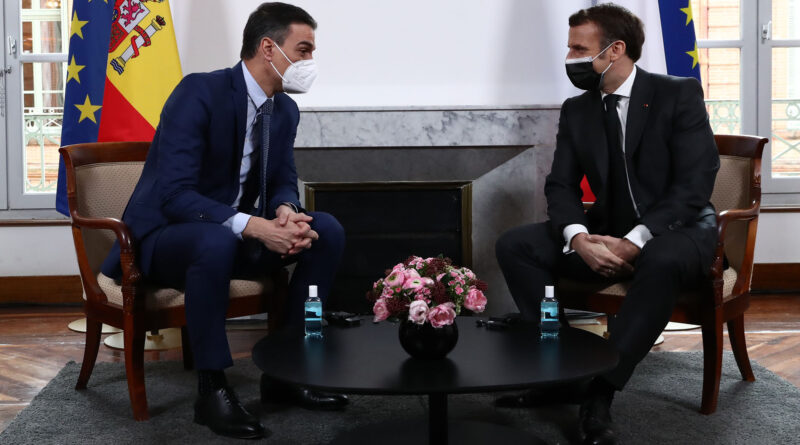Spain and France sign dual nationality agreement
French President Emmanuel Macron and Spanish Prime Minister Pedro Sánchez signed on Tuesday a bilateral convention that will allow their citizens to have both countries’ nationality.
French nationals can have more than one nationality, but for Spaniards this is only possible with Ibero-American countries, the Philippines, Equatorial Guinea, Andorra and Portugal. Otherwise, Spaniards granted another citizenship have to give up their Spanish passport, and vice versa.
“It is a real problem for the French in Spain who today have to renounce their French nationality to acquire the Spanish one,” was a comment on Twitter.
Announced in 2019, the agreement signed by Mr Macron and Mr Sánchez will permit Spanish and French citizens to keep their nationality of origin when they acquire the other.
President Macron reminded that 150,000 French live in Spain and 190,000 Spaniards live in France. The convention will allow them “to fully experience” the belonging to both countries, and open a “common future” for a “generation of fully Franco-Spanish citizens,” he said.
The agreement was signed at the Franco-Spanish summit in Montauban, where Manuel Azaña, the last president of the Second Spanish Republic, died in exile after losing the republican cause. The leaders of the two countries also paid tribute to the nearly 500,000 republican refugees who fled Spain in 1939 to settle in France.
Prime Minister Pedro Sánchez said the agreement corrects an “anomaly” reminding that many such refugees later “contributed to the liberation of France”. He also added that today “we are at a time of supranational identities”.
In a joint declaration, ministers of justice Éric Dupont-Moretti and Juan Carlos Campo welcomed the convention. Campo said the agreement “reinforces the citizenship rights… within the framework of the EU” and is a “consolidation of European freedoms”.
The agreement will have to be “ratified internally” by Spain and France before taking effect, a spokersperson of the Spanish Ministry of Justice told Europe Street.
Other agreements were signed on the side of the summit. One of them aims to strengthen the mobility of future teachers. A pilot project starting next academic year will see the cooperation of the national higher institutes of teaching and education (INSPÉ) of Brittany, Bordeaux, Lille, Nantes and Rouen, and the universities of Granada, Jaén, Valladolid, Cordoba, the Basque Country, Murcia and Navarra.
France and Spain also intend to facilitate the recognition of skills acquired in the respective vocational training centers, and promote the knowledge of the two languages. French and Spanish are the second most learned languages in the respective countries, after English.
The two countries already have the ‘BachiBac’, a Franco-Spanish high school diploma that allows direct access to both French and Spanish higher education.
Claudia Delpero © Europe Street News
This article was published on March 18 and updated on March 27 with information from the Spanish Ministry of Justice. Photo courtesy La Moncloa.
Europe Street News is an online magazine covering citizens’ rights in the EU and the UK. We are fully independent and we are committed to providing factual, accurate and reliable information. We believe citizens’ rights are at the core of democracy and information about these topics should be accessible to all. This is why our website and newsletter are available for free. A lot of research is behind every article, so if you found this useful, please consider making a contribution so we can continue and expand our coverage. Thank you!




